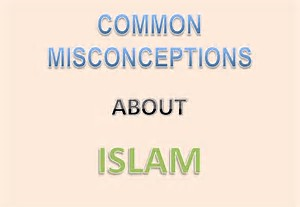WHAT YOU SHOULD KNOW ABOUT RAMADAN (EPISODE 3)
By
Yusuff Ademola Adesina
EPISODE 3: The
Etiquette and Sunnah of Fasting
We praise Allaah, we glorify Him and exalt Him for making us witness
the beginning of this blessed month. I pray that Allaah accept our acts of
worship in this month, forgive us and grant us the goodness of this world and
the Aakhirah.
In
the previous episode, I have discussed the obligation of fasting Ramadan and
some rulings related to it. In this episode, I shall discuss the etiquette and sunnah of sahur and iftar.
The Sunnah of
Sahur
1.
Sahur refers to the food taken in the
dawn before the Fajr time by a person who intends to fast.
2.
Sahur is a blessing
Anas Ibn Malik (may Allah be pleased with him)
narrated: The Prophet (PBUH) said: “Take sahur as there is a blessing in it.”
(Sahih Bukhari, Vol.3, Bk 31, No.146)
3.
The best food item for sahur
Abu Hurayrah (may Allah be pleased with him)
narrated: I heard the Prophet (PBUH) saying: “What a good sahur for the
believers is a sahur of dates.” (Abu Dawood, The Book of Fasting, Hadith 33)
4.
Duration of Sahur
The Qur’an says: “…And eat and drink until the
white thread of dawn becomes distinct to you from the black thread [of night]…”
(Q2:187)
The Sunnah of Iftar
1.
Iftar refers to the breakfast taken at
sunset.
The Qura’n says: “…And eat and drink until the
white thread of dawn becomes distinct to you from the black thread [of night]
Then complete the fast until the sunset…” (Q2:187)
2.
Don’t delay Iftar
Sahl bin Sa’d narrated: Allah’s messenger (PBUH)
said: “The people will remain on the right path as long as they hasten the
breaking of the fast.” (Sahih Bukhari, Vol.3, Bk 31, No.178)
3.
Manners of breaking the fast
a.
Prayer to say before breaking the fast
Ibn Umar narrated that the Prophet (PBUH), when
he would break his fast, would say: “<<Dhahaba adh-Dhama’
wa’btallatil-‘urooq wa thabatal-ajru in shaa Allaah>> (Thirst is gone,
veins are flowing again, and the reward is certain, in shaa Allaah)” (Sunan Abu
Dawood, Bk 14, Hadith 45)
b.
The best food item for breaking the fast
Salman ibn Amir narrated: The Prophet (PBUH)
said: “When one of you is fasting, he should break his fast with dates; but if
he cannot get any, then (he should break his fast) with water, for water is
purifying.” (Sunan Abu Dawood, Bk 14, Hadith 43)
In another transmission, Anas ibn Malik narrated
that the Messenger of Allaah(PBUH) used to break his fast before praying with
some fresh dates; but if there were no fresh dates, he had a few dry dates, and
if there were no dry dates, he took some mouthfuls of water.” (Sunan Abu
Dawood, Bk 14, Hadith 44)
Moderate Eating and Generosity
I mentioned in the introductory part of episode 1
of this series that ‘Cultural Muslims’ have always taken Sahur period as a time of taking excessive eating
and drinking to last them for the day and Iftar period as a time of taking
excessive eating to compensate for the hunger suffered in the day. But is this
sunnah of the Prophet (PBUH)?
The answer is obviously NO. The moral
characters behind fasting the month of Ramadan are to be controlled, moderate,
compassionate and generous.
Recall that the Messenger of Allah said that the
best sahur for the believers is the sahur of tamar (dates); thus, strive to
revive this sunnah and Allah shall reward you.
Do not become excessive in your eating and
drinking; eat and drink moderately and give out to the poor, for Allah and His
beloved Prophet (PBUH) strongly warned against extravagance.
Allah says:
“… Eat of (each of) its fruit when it yields and
give its due (Zakah) on the day of its harvest. And be not excessive. Indeed,
He does not like those who commit
excess” (Q6:141)
“… and eat and drink, but be not excessive.
Indeed, He likes not those who commit excess” (Q7:31)
In addition, the Prophet (PBUH) said:
“A human being fills no worse vessel than his
stomach. It is sufficient for a human being to eat a few mouthfuls to keep his
spine straight. But if he must (fill it), then one third of food, one third for
drink and one third for air” (Narrated by Ibn Miqdam ibn Madikarib, Sunan ibn
Majah, Bk 29, Hadith 3474)
Abullah Ibn ‘Abbas narrated: The Prophet (PBUH)
was the most generous amongst the people, and he used to be more so in the
month of Ramadan when Gabriel visited him, and Gabriel used to meet him on
every night of Ramadan till the end of the month. The Prophet used to recite
the Holy Qur'an to Gabriel, and when Gabriel met him, he used to be more
generous than a fast wind (which causes rain and welfare) (Sahih Bukhari,
Vol.3, Bk 31, No.126)
I hope the content of this episode is sufficient
enough to revive the sunnah of Prophet Muhammad (PBUH) related to sahur, iftar
and moderate eating. I shall talk about matters related to the night prayer –
Taraweeh – in the next episode (In shaa Allaah).
RELATED
POSTS
WHAT YOU SHOULD KNOW ABOUT RAMADAN (EPISODE 2) http://themindbuilders.blogspot.com.ng/2017/05/what-you-should-about-ramadan-episode-2.html
WHAT YOU SHOULD KNOW ABOUT RAMADAN (EPISODE 1) http://themindbuilders.blogspot.com.ng/2017/05/what-you-should-know-about-ramadan.html
RAMADAN AND ITS SPIRITUALITY, HOW MUCH DO YOU
KNOW? http://themindbuilders.blogspot.com.ng/2017/05/ramadan-its-spirituality-how-much-do.html

















Comments
Post a Comment